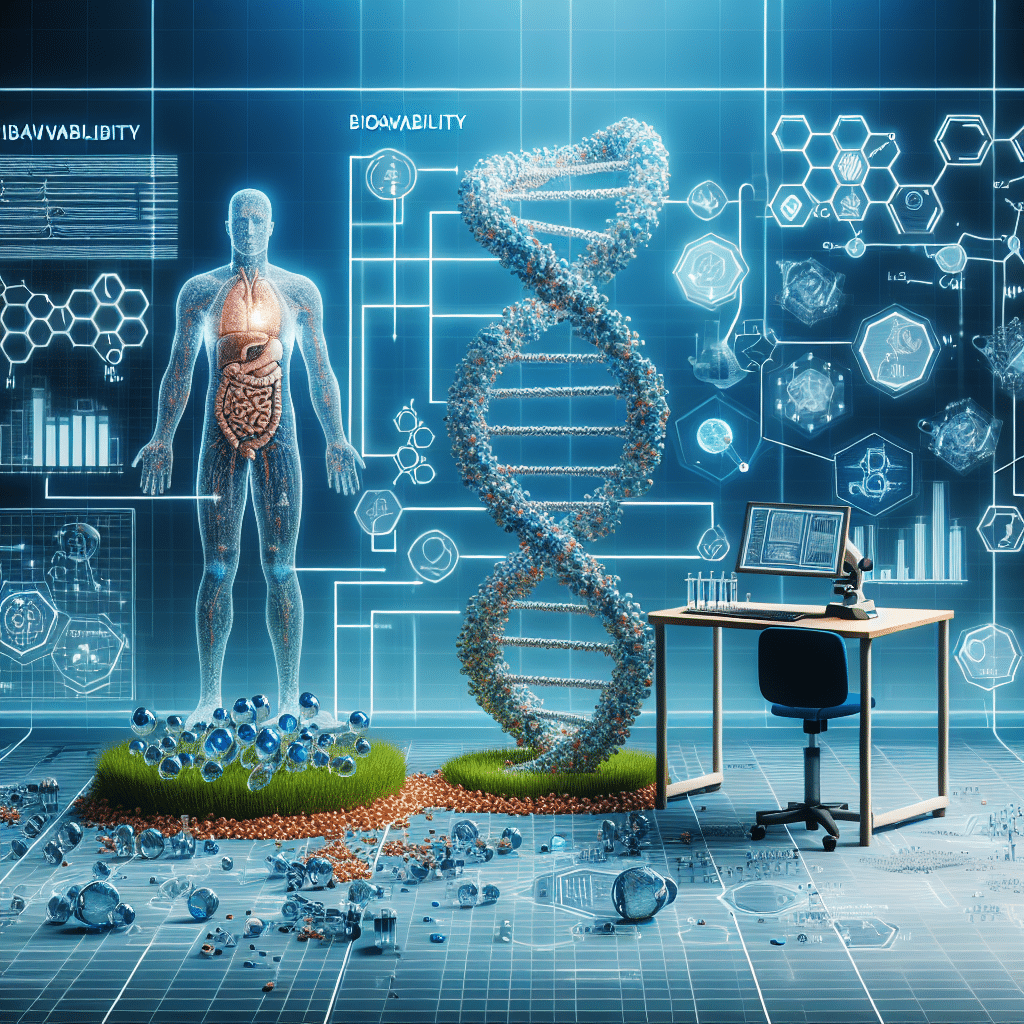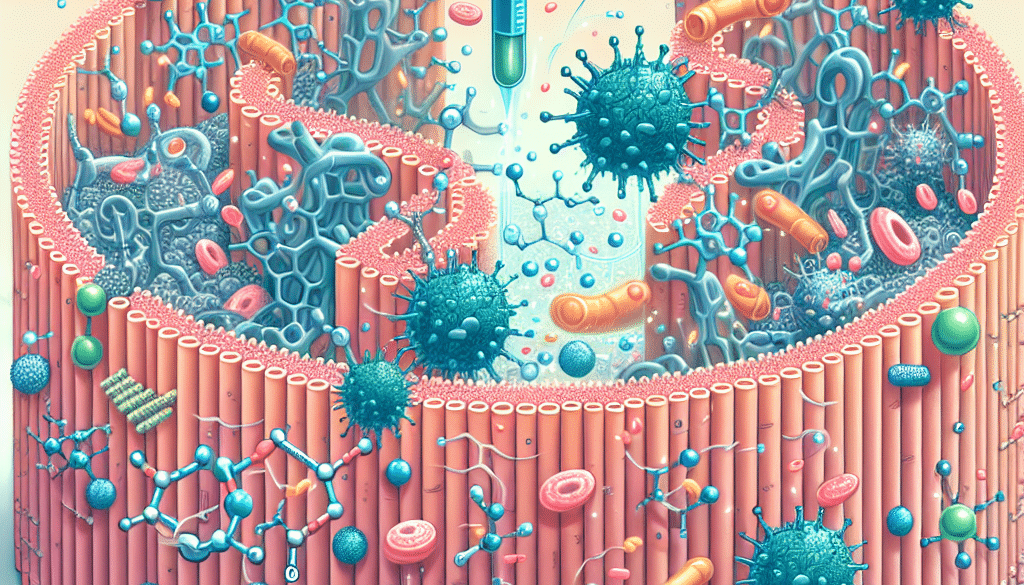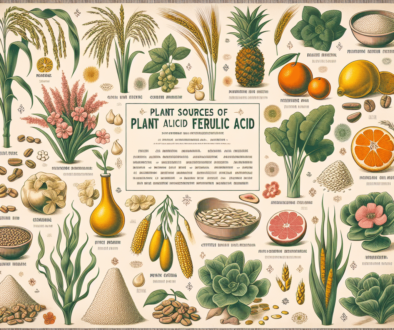What Is The Bioavailability Of Phloretin?
-
Table of Contents
- Understanding the Bioavailability of Phloretin: Insights and Implications
- What is Phloretin and Why is its Bioavailability Important?
- Factors Affecting the Bioavailability of Phloretin
- Research on the Bioavailability of Phloretin
- Enhancing the Bioavailability of Phloretin
- Case Studies and Statistics
- Conclusion: Key Takeaways on Phloretin’s Bioavailability
- Discover ETprotein’s High-Quality Protein Products
Understanding the Bioavailability of Phloretin: Insights and Implications

Phloretin, a dihydrochalcone found predominantly in apples and some other fruits, has garnered attention for its potential health benefits, including antioxidant, anti-inflammatory, and anti-cancer properties. However, the effectiveness of any bioactive compound is significantly influenced by its bioavailability, which is the proportion of the substance that enters the circulation when introduced into the body and so is able to have an active effect. This article delves into the bioavailability of phloretin, exploring the factors that affect it, the implications for health, and the current research landscape.
What is Phloretin and Why is its Bioavailability Important?
Phloretin is a natural compound that belongs to the class of plant chemicals known as polyphenols. It is found in the leaves and fruit of apple trees, as well as in some other fruits and vegetables. The interest in phloretin is due to its potential therapeutic effects, which include anti-diabetic, anti-cancer, and cardiovascular protective activities. However, for phloretin to exert these effects, it must be bioavailable.
The bioavailability of a compound is a critical factor that determines its efficacy. It is influenced by numerous factors, including its absorption, distribution, metabolism, and excretion (ADME). A compound with poor bioavailability may not reach the target tissues in sufficient concentrations to elicit a therapeutic effect, rendering it ineffective despite its potential in vitro activities.
Factors Affecting the Bioavailability of Phloretin
- Physicochemical Properties: The chemical structure of phloretin affects its solubility and stability, which in turn influence its absorption in the gastrointestinal tract.
- Metabolism: Phloretin undergoes extensive first-pass metabolism, which can significantly reduce its bioavailability.
- Transport Mechanisms: The compound’s transport across cellular membranes also plays a role in its bioavailability.
- Interactions with Other Compounds: Phloretin may interact with other dietary components, which can either inhibit or enhance its absorption.
Research on the Bioavailability of Phloretin
Scientific studies have investigated the bioavailability of phloretin in both animal models and human subjects. These studies typically measure the presence of phloretin and its metabolites in plasma and urine after administration. The research indicates that phloretin is rapidly absorbed following oral ingestion but is also quickly metabolized and excreted, which suggests a relatively low bioavailability.
For example, a study published in the “Journal of Nutritional Biochemistry” found that after consuming apple juice, phloretin’s metabolites were detectable in human plasma and urine, indicating that phloretin is bioavailable to some extent. However, the rapid clearance from the body suggests that maintaining therapeutic levels of phloretin could be challenging.
Enhancing the Bioavailability of Phloretin
Given the potential health benefits of phloretin, there is interest in strategies to enhance its bioavailability. These include:
- Formulation Strategies: Developing formulations such as nanoparticles, liposomes, or emulsions to protect phloretin from degradation and enhance its absorption.
- Co-Administration with Other Compounds: Combining phloretin with other substances that can inhibit its metabolism or enhance its absorption.
- Genetic and Biotechnological Approaches: Modifying the metabolic pathways in plants to increase the natural content of phloretin or its precursors.
Case Studies and Statistics
Case studies involving phloretin supplementation in humans and animals have provided valuable insights into its bioavailability and therapeutic potential. For instance, a clinical trial might track the improvement in blood glucose levels in diabetic patients after phloretin administration, correlating these effects with the bioavailability data.
Statistics from such studies can offer a quantitative understanding of phloretin’s bioavailability. For example, a study might report that a certain percentage of orally administered phloretin is detected in the bloodstream within a specific time frame, providing a measure of its absorption rate.
Conclusion: Key Takeaways on Phloretin’s Bioavailability
The bioavailability of phloretin is a complex issue influenced by various factors, including its metabolism and interactions with other dietary components. While phloretin shows promise due to its potential health benefits, its low bioavailability presents challenges for its use as a therapeutic agent. Ongoing research is focused on developing strategies to enhance the bioavailability of phloretin, which could unlock its full potential for promoting health and preventing disease.
Discover ETprotein’s High-Quality Protein Products
If you’re interested in enhancing your health and nutrition regimen, consider exploring ETprotein’s range of high-quality protein products. ETprotein specializes in organic bulk vegan proteins and L-(+)-Ergothioneine (EGT), offering a variety of options to meet your dietary and health needs. Their products are characterized by a neutral taste, non-GMO, allergen-free attributes, and high purity levels, making them an excellent choice for those seeking to incorporate quality proteins into their diet.
Whether you’re involved in the nutraceutical, pharmaceutical, cosmeceutical, or food and beverage industries, ETprotein provides comprehensive solutions to meet all your protein needs. With a reputation for excellence and a commitment to customer satisfaction, ETprotein is your go-to source for premium protein products.
About ETprotein:
ETprotein, a reputable protein and L-(+)-Ergothioneine (EGT) Chinese factory manufacturer and supplier, is renowned for producing, stocking, exporting, and delivering the highest quality organic bulk vegan proteins and L-(+)-Ergothioneine. They include Organic rice protein, clear rice protein, pea protein, clear pea protein, watermelon seed protein, pumpkin seed protein, sunflower seed protein, mung bean protein, peanut protein, and L-(+)-Ergothioneine EGT Pharmaceutical grade, L-(+)-Ergothioneine EGT food grade, L-(+)-Ergothioneine EGT cosmetic grade, L-(+)-Ergothioneine EGT reference grade and L-(+)-Ergothioneine EGT standard. Their offerings, characterized by a neutral taste, non-GMO, allergen-free attributes, with L-(+)-Ergothioneine purity over 98%, 99%, cater to a diverse range of industries. They serve nutraceutical, pharmaceutical, cosmeceutical, veterinary, as well as food and beverage finished product distributors, traders, and manufacturers across Europe, USA, Canada, Australia, Thailand, Japan, Korea, Brazil, and Chile, among others.
ETprotein specialization includes exporting and delivering tailor-made protein powder and finished nutritional supplements. Their extensive product range covers sectors like Food and Beverage, Sports Nutrition, Weight Management, Dietary Supplements, Health and Wellness Products, and Infant Formula, ensuring comprehensive solutions to meet all your protein needs.
As a trusted company by leading global food and beverage brands and Fortune 500 companies, ETprotein reinforces China’s reputation in the global arena. For more information or to sample their products, please contact them and email sales(at)ETprotein.com today.














